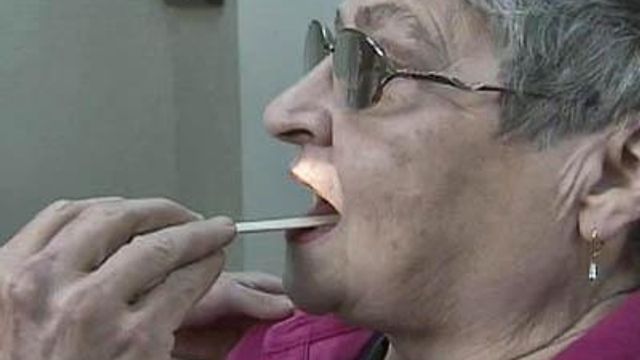Health Team
With Age Comes Voice Loss, for Some
With age, people's bodies change – and so do their voices. Some are left with barely any voice at all.
Posted — UpdatedRALEIGH, N.C. — People’s bodies change with age, and so do their voices. Some are left with barely any voice at all.
Many people know an elderly family member or friend whose voice has become more breathy, raspy and strained. Special therapy, and even surgery, can give them their voices back.
Mary Douglas, 70, had enough problems with her voice, and then a case of the flu almost took it out entirely.
“I was terrified. I didn't know if I was going to speak again,” she said.
It made it harder to communicate, especially with her husband, Glenn.
“Well, it's real tough when you're deaf on one side,” he said.
“And if he's in the other room, he still can't hear me, so I knock on the wall,” Mary said.
That can create some social isolation and patients “really kind of get lost,” said Duke Raleigh Health Otolaryngologist Dr. David Witsell.
“As people age, the vocal chords themselves kind of loosen up, become like a loose rubber band, and they don't quite come together,” he said.
Witsell told Mary she could get her voice back. He took fat from her abdomen and injected it in muscles beside the vocal folds, pushing them closer together.
Speech pathologist Caroline Banka helped Mary make her voice resonate more strongly. With a new voice, life at home was back to normal.
“She's got it back so that I can understand her,” Glenn said.
Mary had another problem besides vocal fold atrophy. To compensate for the inability to speak, she strained her neck muscles to form sound. That can cause muscle tension dysphonia and contributes to polyp growth on the vocal cords. She had one of those removed surgically.
• Credits
Copyright 2024 by Capitol Broadcasting Company. All rights reserved. This material may not be published, broadcast, rewritten or redistributed.





